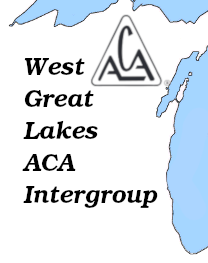Your cart is currently empty!
An “adult child” is someone who meets the demands of life with survival techniques learned as children. Without help, we unknowingly operate with ineffective thoughts and judgments that can sabotage our decisions and relationships.
The only requirement in ACA is a desire to recover from the effects of growing up in a dysfunctional home, regardless of whether or not alcohol was a factor. There are no screening committees, questionnaires, or waiting periods to join. You are an ACA member when you say you are.
|
We commonly identify with these 14 traits (the “Laundry List”) that describe the effects of being raised in an alcoholic or dysfunctional family:
1. We became isolated and afraid of people and authority figures. 2. We became approval seekers and lost our identity in the process. 3. We are frightened of angry people and any personal criticism. 4. We either become alcoholics, marry them or both, or find another compulsive personality such as a workaholic to fulfill our sick abandonment needs. 5. We live life from the viewpoint of victims and we are attracted by that weakness in our love and friendship relationships. 6. We have an overdeveloped sense of responsibility and it is easier for us to be concerned with others rather than ourselves; this enables us not to look too closely at our own faults, etc. 7. We get guilt feelings when we stand up for ourselves instead of giving in to others. 8. We became addicted to excitement. 9. We confuse love and pity and tend to “love” people we can “pity” and “rescue.” 10. We have “stuffed” our feelings from our traumatic childhoods and have lost the ability to feel or express our feelings because it hurts so much (Denial). 11. We judge ourselves harshly and have a very low sense of self-esteem. 12. We are dependent personalities who are terrified of abandonment and will do anything to hold on to a relationship in order not to experience painful abandonment feelings, which we received from living with sick people who were never there emotionally for us. 13. Alcoholism is a family disease; and we became para-alcoholics and took on the characteristics of that disease even though we did not pick up the drink. 14. Para-alcoholics are reactors rather than actors. Identification with some or all of these traits provides a starting point of recovery for each adult child looking for help. |
Intergroup Information
National/Global ACA Information
Recovery Resources
